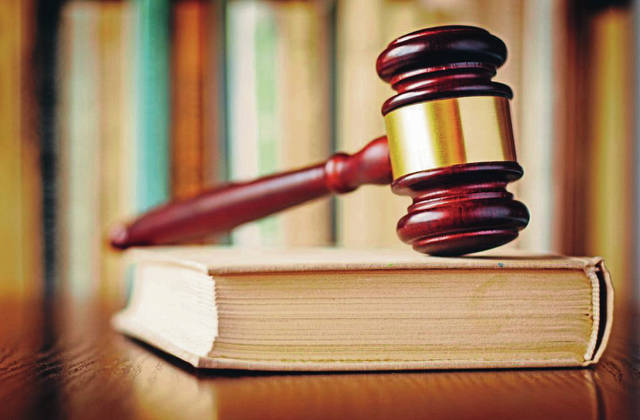A pandemic can affect a lot of things. It can change how we work, how kids go to school and how we shop. It can screw up baseball and bingo. It can complicate weddings and funerals.
But it doesn’t change the Constitution.
It hasn’t changed the freedom of speech of protesters, who in May called loudly for governors, including Pennsylvania’s Tom Wolf, to roll back quarantine restrictions.
It didn’t change the freedom of assembly for protesters across the country denouncing the death of George Floyd at the hands of police or the freedom of religion for people practicing their faith.
It also doesn’t change the freedom of the press. We still have the right — and the responsibility — to ask questions, research issues, attend meetings and follow court cases.
That is hampered when we are not allowed in the courtroom.
On Friday, Westmoreland County District Judge Mark Bilik didn’t let a Tribune-Review reporter into the hearing for Nathan Joseph Quidetto, 20, of Unity, who is charged in the July 20 killing of a woman in her Derry Township home.
Of course, Quidetto was sitting outside the courtroom, too, but he had waived his right to be present while others, such as investigators, attorneys and witnesses, participated in the hearing. That’s up to him and his attorney. The Tribune-Review did not abdicate its right to observe the proceedings.
President Judge Rita Donovan Hathaway said she did not intend in discussions with Bilik to restrict press access. That was Bilik’s decision, and we will admit that limiting the number of people in the room does make sense during the covid-19 pandemic.
But just as school boards and city councils are making arrangements for public participation in and press observation of government meetings, the courts must keep legal proceedings in public view.
Hathaway said she will address the situation, and creative solutions such as teleconferences might be used.
That should happen.
Such technology has been used to allow inmate participation without transportation. Federal courts release audio of their appeals arguments. This year, the U.S. Supreme Court even permitted telephone arguments because of covid-19. There is no reason it should not be used to preserve freedom of the press.
“Covid doesn’t erase the First Amendment,” said Melissa Melewsky, media law counsel of the Pennsylvania NewsMedia Association.
It doesn’t. It might change how we do some things, but the First Amendment can’t be a pandemic casualty.








